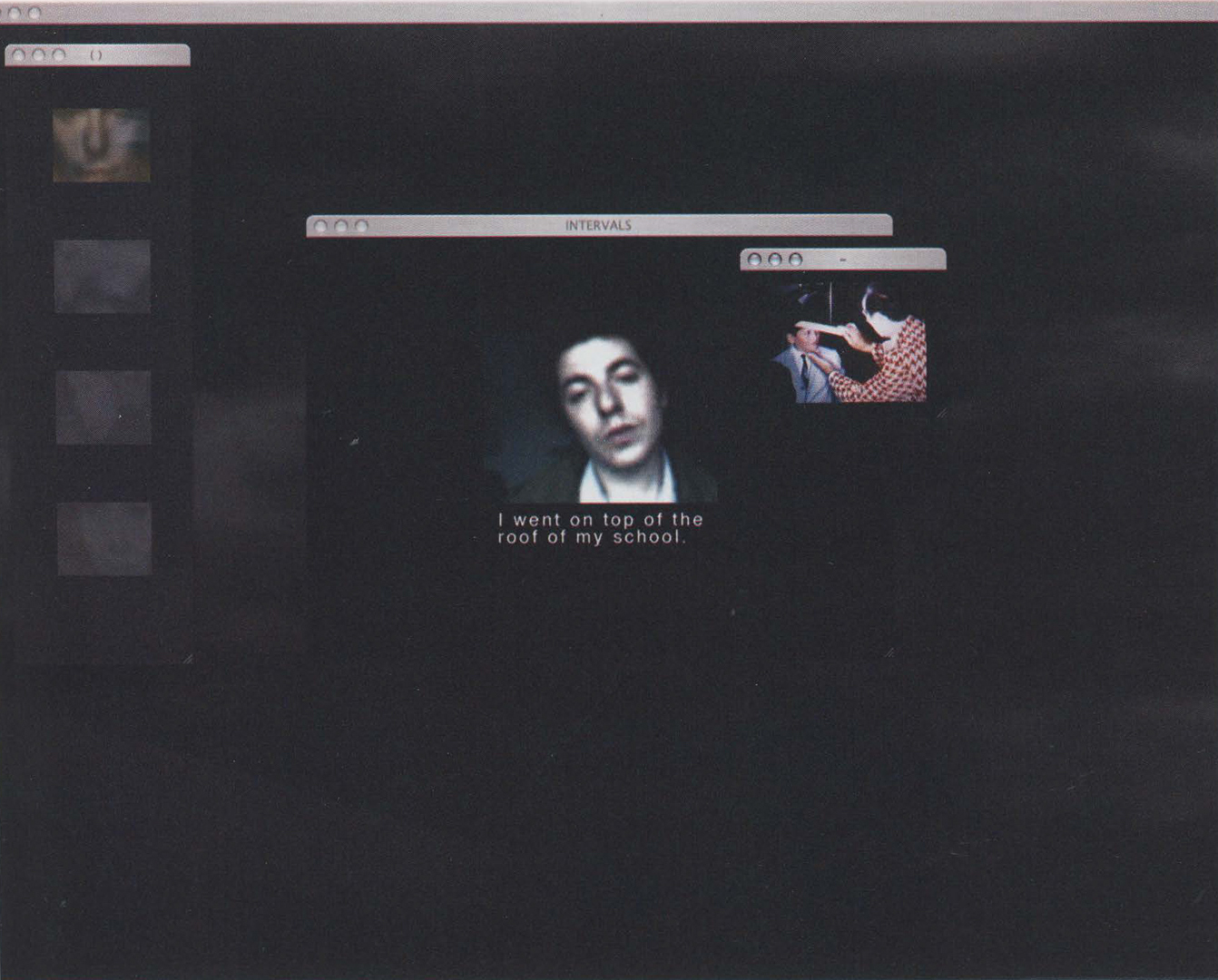Peter Horvath: Intervals
Artist(s):
Title:
- Intervals
Exhibition:
Creation Year:
- 2005
Medium:
- Web-based art
Category:
Artist Statement:
Formally, I see myself as a participant and investigator in the realm of new media art as it exists on the web. In its binary aspect , the web mirrors the process of choice-making by which we navigate our environments, making it an ideal medium to discuss issues relating to the realm of subjective experience. Conceptually, my work derives from and revolves around my unchanging curiosity about the nature of
identity and consciousness. To me, identity is related to and generated by what belongs to the spectrum of one’s history: subjective or objective, microscopic or macroscopic, private, familial, and sociopolitical. Through my work, I attempt to address the difference between conscious and subconscious identity and drives. In the frontier world of web technology I have found a medium that encompasses and expands the lush, pluralistic, and multi-layered qualities of my previous Dada-inspired photomontage work. Freed from the restricting two-dimensional context by technological advances, I engage in fragmented narratives and sub-narratives that form and reform as multiple windows open and close. I orchestrate layers of history, including journal entries, sketches, written records, video, photographs, music, voice, and general sound loops, resulting in a atmospheric investigation into states of being.Intervals explores a series of characters whose investigation of self and identity unfold and elide through a sequence of cinematic interludes. Hovering through an amorphous landscape, we begin by observing the mirror images of four animated figures. At once seductive and elusive, these portraits successively expose their most intimate selves through accounts of lost innocence, fear of the unknown, masculine ritual, and the mystery of love. Here identify is subject to slippages, distortions, and filmic alter egos that mimic and echo their subjects’ memory.





